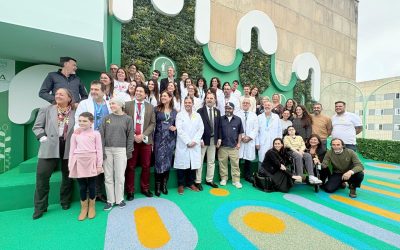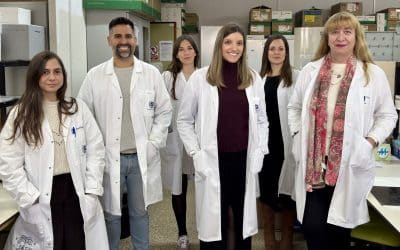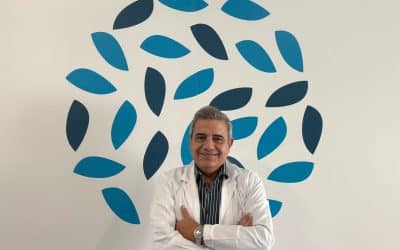- This study, based on advanced proteomics techniques, provides evidence of new health benefits of an extract of EVOO phenolic compounds.
- A team of scientists belonging to IBIMA Plataforma BIONAND and the University of Malaga (UMA) has led this work.
A research team from the Biomedical Research Institute of Malaga and Nanomedicine Platform (IBIMA Plataforma BIONAND) and the University of Malaga (UMA) has published a pioneering study that reveals the anti-angiogenic potential of extra virgin olive oil (EVOO).
The term antiangiogenic refers to something that stops or slows down the formation of new blood vessels. In this sense, anti-angiogenic treatments or substances prevent new veins or arteries from being created in the body, which is very important in diseases such as cancer, where tumors need to form new blood vessels in order to grow and expand. By blocking this process, the growth of tumors or other conditions that depend on the creation of these vessels can be limited.
The study, published in the journal Journal of Agricultural and Food ChemistryThe study shows that an EVOO extract, specifically of the Picual variety, can inhibit the formation of new blood vessels, which opens new avenues for its use in the treatment of diseases related to angiogenesis, such as cancer and macular degeneration.
EVOO, an essential element of the Mediterranean diet, is known for its beneficial effects on health, such as anti-inflammatory and antioxidant properties. However, this study, carried out using advanced proteomics techniques, goes further by identifying how certain phenolic compounds in EVOO can influence the activity of endothelial cells, which are responsible for the formation of new blood vessels.
For her part, Ana Dácil Marrero, one of the main authors of the study, and member of the research group 'Molecular Bases of Biological Systems (SIBIUMA)' and linked to the Department of Molecular Biology and Biochemistry of the UMA, emphasized that “our study shows that the phenolic compounds in extra virgin olive oil are not only beneficial to health, but also have a direct effect on the formation of blood vessels, which could have therapeutic applications in diseases where angiogenesis plays a transcendental role in the course of the disease, such as cancer”.
In addition, Miguel Ángel Medina, professor of this department at the UMA and head researcher of the Institute's research group, underlines the impact of this study as it shows that “the use of EVOO extracts to inhibit angiogenesis is a promising tool that encourages us to continue researching in this line, with an approach that could complement current treatments and offer less invasive alternatives in various pathologies in the future”.
Study reference:
Marrero AD, Cárdenas C, Castilla L, Ortega-Vidal J, Quesada AR, Martínez-Poveda B, Medina MÁ. Antiangiogenic Potential of an Olive Oil Extract: Insights from a Proteomic Study. J Agric Food Chem. 2024 Jun 12;72(23):13023-13038. doi: 10.1021/acs.jafc.3c08851. Epub 2024 May 29. PMID: 38809962; PMCID: PMC11181319.
Raúl J. Andrade Bellido, es Investigador Responsable del grupo consolidado ‘Hepatogastroenterología, Farmacología y Terapéutica Clínica Traslacional’ de IBIMA Plataforma BIONAND, Catedrático y Director del Departamento de Medicina en la Facultad de Medicina de la Universidad de Málaga, Jefe de Servicio Aparato Digestivo del Hospital Universitario Virgen de la Victoria en Málaga. Además, es el Responsable del Grupo Español de Hepatopatias asociadas a medicamentos (Spanish DILI Registry), el Coordinador de la Red Ibero-Americana de Hepatopatías asociadas a medicamentos (SLATINDILI) y también del Registro europeo de Hepatopatías asociadas a Medicamentos (Pro-Euro DILI Registry). Chair de la COST Action CA17112 – Prospective European Drug-Induced Liver Injury Network (PRO-EURO DILI NET) y del EASL DHILI Consortium. Horizonte2020. Framework Programme (European Union).



